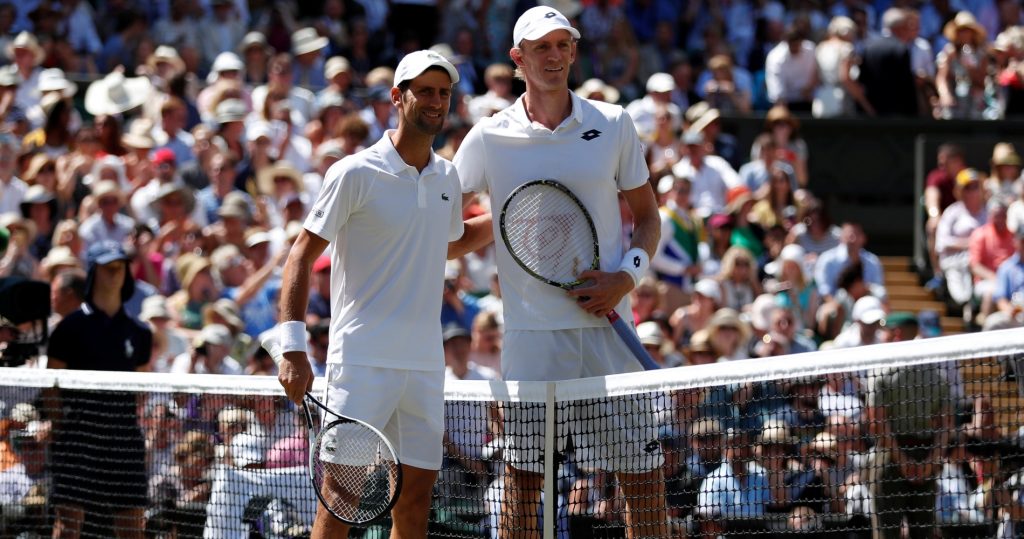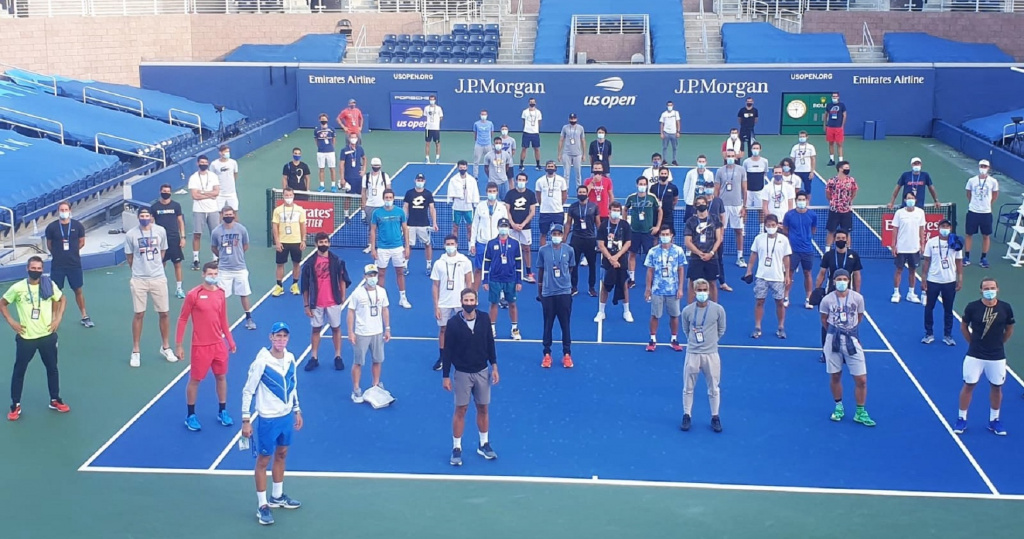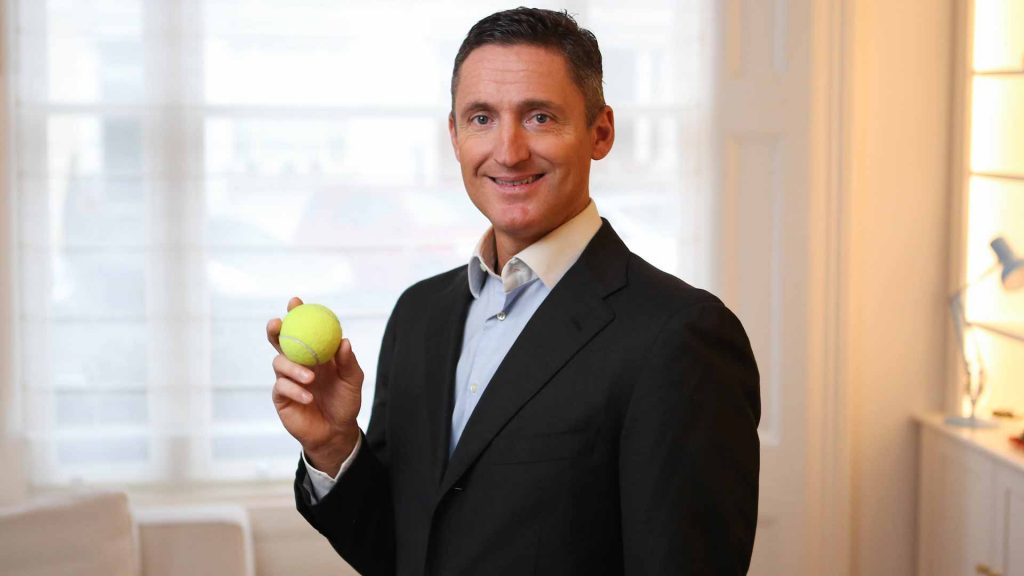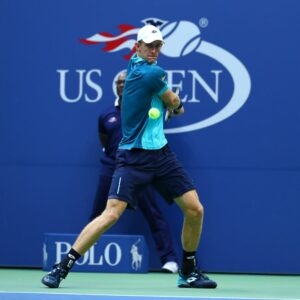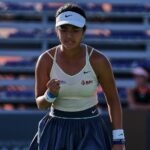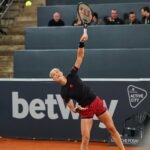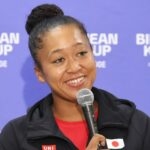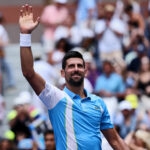Kevin Anderson interview: WTA merger has not been on the table
In an exclusive interview with Tennis Majors, South African Kevin Anderson, a long-time member of the ATP Player Council, gives his opinion on some of the hottest topics in the men’s game
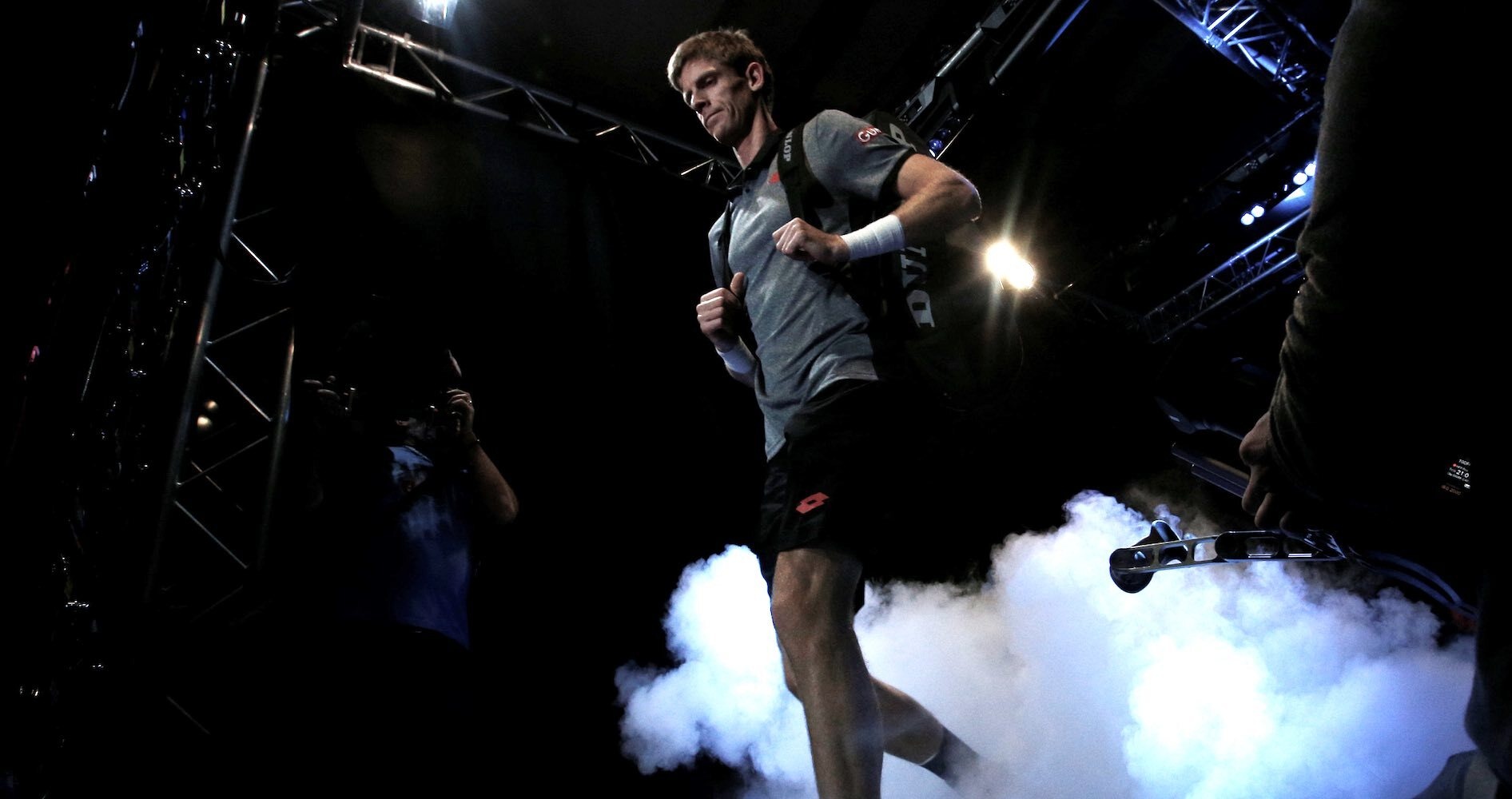 Tennis – ATP Finals – The O2, London, Britain – November 15, 2018 South Africa’s Kevin Anderson before his group stage match against Switzerland’s Roger Federer
Tennis – ATP Finals – The O2, London, Britain – November 15, 2018 South Africa’s Kevin Anderson before his group stage match against Switzerland’s Roger Federer
South Africa’s Kevin Anderson has been on the ATP Player Council for almost 10 years.
As he prepared to head to Australia for the start of his 2021 campaign, the 34-year-old talked to Tennis Majors about everything from talk of a merger with the WTA to whether a vaccine might be required to play tournaments, from the Professional Tennis Players Association (PTPA) to reduced prize money and mental health.
Below is a slightly edited version of the interview.
What is the biggest challenge for the coming year?
“Navigating the virus and trying to put as much tennis on the calendar as possible is going to be, I think, the biggest challenge. We only really have a calendar through Miami. You know, it’s a big waiting game. Some tournaments had to cancel, obviously, most notably Indian Wells. They’re potentially trying to postpone it. I mean, who knows when or how that’s even possible. So that’s going to be the biggest challenge and then secondary, we’ve obviously got a lot of other things we’re working on. There is new (ATP) management and they are trying to put in different plans and working towards their version of improvements and changes they want to make to the sport, so I guess that’s going on in the background as well.”
As a player, when you’re travelling and have all the protocols and quarantines to negotiate, is it stressful? Do you feel safe?
“I think it affects some people more than others. The biggest one, from my standpoint, was (that) it was really difficult travelling with my family. Obviously, there’s quite a big difference not playing with fans. It really was nice, the few tournaments that were allowed some fans. I think from what I’m understanding, Australia will have a good (number of) fans so I think everybody will be really looking forward to that.
My practice partner is pretty quick these days 😄 pic.twitter.com/oSwOfscSug
— Kevin Anderson (@KAndersonATP) December 2, 2020
“I think probably the most stressful thing is a lot of this is out of your control. And if you do test positive, you’re going to be quarantined, you’re not going to be able to play and no matter how safe you are yourself, there’s always a little bit of that unknown element. So that part’s a little bit tough to deal with, especially, we’re not in a contained bubble the whole time we are travelling. You know a lot of these tournaments that we are playing, it’s not… I mean, they’re doing a good job with a lot of safety protocols, but it’s by no means a complete and isolated bubble, which is obviously very hard to pull off logistically.”
It’s common knowledge that prize money will not be what it was at regular Tour events. Has that been an issue for players?
“From the Council standpoint, I think it (has) worked pretty well with the tournaments. Obviously we understand that, whether you agree with them or not, the bottom line is the big revenue producer of these tournaments is fans and not just directly fans (but) the amount of sponsorship on site… I think everything just comes down. So I think it’s a very reasonable position to work with the tournaments. Some of them are struggling a lot financially…from what I’m hearing, some of them are even potentially running at a loss. So if they are willing to run the tournaments, I think it’s a good negotiation for the players to understand that and to accept these prize money reductions. And I think it’s a good system. It’s based on what (percentage) of fans are in the stadium. I mean, if the tournament is running at full capacity, we’ll have full prize money. And that’s a sliding scale. So it’s something that we’ve discussed a lot about in the Council. It’s obviously not an ideal situation for everybody but I think it’s sort of necessary for these tournaments to take place.”
Is the plan to redistribute prize money, making it less top heavy?
“Yeah, that was (the plan). I think you’ve seen that in a lot of these tournaments, first-round prize money has almost remained the same. A lot of that money has come out from the later rounds. We had a small adjustment because we felt, and a lot of players felt, that it was a little bit too drastic and they felt like we should reward people who do well in tournaments a little bit more. So I think the new distribution, considering how little the prize money is, I think it’s a pretty good outcome.”
The vaccines are beginning to be rolled out. Might there be a situation where the Tour says you’ve got to take the vaccine to be able to play, for example? Is that an issue that’s come up yet?
“We briefly, in our last call, spoke about vaccines. I feel like, it wasn’t very long ago all these things were approved. I know just initially, you know, it’s very difficult to even get them, I think rightfully so, they’re being administered to the first responders, the people who are at risk. So I mean, eventually, hopefully, when it becomes more widespread, we’ll probably have to have more discussions about it. Initially, there was talk about if you do have a vaccine, you don’t have to be subject to the testing protocols that the ATP has in place. But then there was something (discussed) that even if you get it (the vaccine), you could potentially still spread it (the virus). So I think there are still a lot of questions to be decided and we still need to get more information before we start deciding what potentially is mandated within the Tour.”
Some players have been struggling over the past year, due to the reduced playing opportunities. Has the Council thought much about the mental health of players in these particular times?
“I feel like we’ve definitely come up short when it comes to the topic of mental health and offering services to players. We have introduced a couple of things… players can talk to doctors and we’ve got access to Headspace (and Sporting Chance). But I feel like just in general, if you look at, for instance, the ATP physio department, we’ve got a whole bunch of people (whereas) I think the mental health (provision) severely sort of lags behind that. That is something that I think is really, really important and I think we should definitely increase the budget for and sort of give players that that support.”
So, you’re headed to Australia soon?
“Yes, I’ll be there. Unfortunately, we just missed out on the ATP Cup. But that is what it is. So I’ll be playing an ATP 250 before Australia.”
The last time you were on court at Paris Bercy, you retired with an injury. How’s everything now?
“Oh, that was very short, fortunately that just needed a few days. Good to go, so looking forward to heading down to Australia.”
It’s been a rough couple of years for you (Anderson had knee surgery in February 2020, his third significant operation in four years). Are you still as hungry as ever?
“I mean, obviously, there is the challenge of keeping the body as healthy as possible, but I feel like I’ve got a good team in place. We work as hard as we can, some things are just out of your control, but I’m really looking forward to building some momentum. It’s been a tough couple of years for me in terms of the injuries. So, hopefully I’ll be able to overcome that and give myself the best possible chance.”
Just wondering…..am I the only one thinking that now is the time for men’s and women’s tennis to be united and come together as one?
— Roger Federer (@rogerfederer) April 22, 2020
I am picturing a merger between the WTA and ATP 🤝 https://t.co/qB7oGEhikN
— Roger Federer (@rogerfederer) April 22, 2020
There was talk last year about a possible ATP and WTA merger, or at least collaborating more. What are your thoughts on that?
“There’s been no real discussions on that (a merger). I don’t really have too much to discuss on that because it’s not been something that’s really been on the table. I mean, other than just a sort of vague notion, there would be a lot of details that everyone would have to work out. Obviously the sport is strongest when everybody works together, but I can’t really comment on what it looks like from a logistical and a business standpoint. I know that part of (ATP) management’s new plan is to work together with these separate entities and from an ATP perspective, obviously, the WTA is a huge partner, so that’s something that really needs to be looked at carefully. I don’t know if that (merger talk) was something that some players wanted to chat (about) but maybe the pandemic sidetracked people. As of now, that’s not a conversation we’ve had internally with ATP or any conversations with the WTA either.”
Last year, we saw the emergence of the Professional Tennis Players Association (PTPA). Do you think the ATP and PTPA can work together? I know the ATP has said publicly that it doesn’t feel that they can.
“Well… I hope everybody can work together, just from a big picture standpoint, because that’s when we’re the strongest. In terms of logistics and the actual flow of information and decision-making, I don’t see how we can possibly work together, just purely from… the way our structures are set up. I have not been privy to any of these conversations, I don’t know what the PTPA’s sort of vision is and how they see them progressing forward. And so, as far as I can say, the players are represented by the Council, by the Tour members, and yes, our structure is 50 per cent owned by tournaments, 50 percent owned by players, but even if you had an entity that’s 100 per cent owned by players, you’d still have to go to the table and negotiate with the tournaments. So I personally don’t really see how that would be that much more beneficial.
“I don’t think the system is perfect where it is. And the new management has talked a lot about having a full review and changing some of the governance, which I think would be really important, stuff like term limits, conflicts of interest and things of this nature, which I think would be really important to look at. But I still believe that needs to be done within the structure of the Tour. Maybe 30 years ago, it could have been done a little bit differently, but as things stand now, I mean, we are talking about an organisation that is a multi-national company, in terms of employees, contractors, different people, this isn’t just sort of a small style of business that you can sort of change (easily).”
Analysis: What we learned from Vasek Pospisil about the PTPA
Conflicts of interests is a huge issue. Where do you even start?
“I know. I don’t think you’ll ever find an ideal situation and I think you’ll always have some. (conflicts of interest). At least having a conversation and looking at it is a very good place to start.”
You were president of the ATP Player Council in October but after the recent elections, are you still actually president?
“So the new council was just elected, a couple of weeks ago, and we will elect a new president in our next meeting. So I’m not sure when that is. I guess technically right now there is no there is no president.”
How does it work? Do you stand for it or do you just get elected amongst you?
“I think how it’s worked in the past, people who are interested will sort of put their names forward. And I think it’s been a good healthy discussion on what the players think and who’s on the Council. Obviously, there are some really big names on our Council (Roger Federer, Rafael Nadal and Andy Murray are all part of the 12-man Council). I guess we’ll have to have conversations to see what makes the most sense.”
But you envisage putting yourself forward?
“I think so. I mean, it depends on obviously what the other players feel. I feel like, obviously I’ve been doing this for a long time. It’s my sixth term on the council, which could be some sort of record, I’m not sure. I’ve really enjoyed doing it, I feel like I do understand it quite well. And I think, you know, it’s obviously an important time the next couple of years. So, you know, I’d certainly be interested in doing it.”
